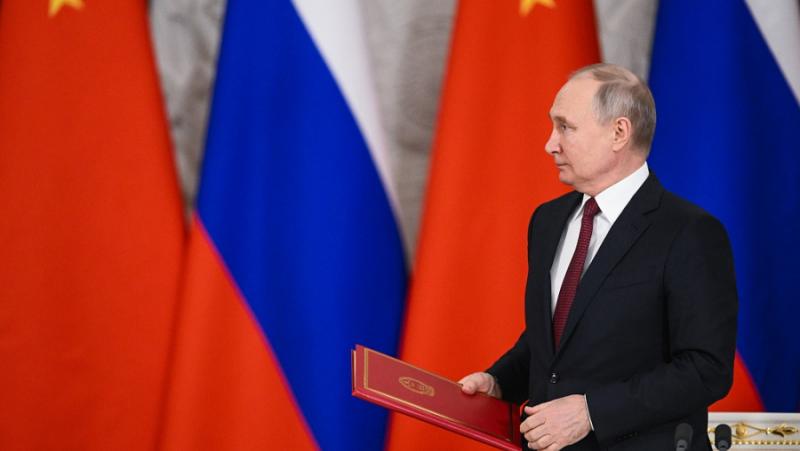USA This Thursday he rejected the decision of the International Criminal Court (CPI) to issue arrest warrants against the Israeli prime minister, Benjamin Netanyahuand his former Minister of Defense Yoav Gallant for war crimes and crimes against humanity in the Gaza Strip.
“The United States fundamentally rejects the Court’s decision to issue arrest warrants against senior Israeli officials”A White House spokesperson told EFE, explaining that Washington is coordinating with its allies, including Israel, on the “next steps” to take.
The spokesperson noted that the United States is “deeply concerned” by the “hastiness” of the ICC Prosecutor’s Office, led by Karim Khan, in requesting the arrest warrants, as well as the “problematic procedural errors that have led to this decision.” .
“The United States has made it clear that the ICC has no jurisdiction over this matter,” the spokesperson stressed.
The ICC called this Thursday for the arrest and surrender of both Netanyahu and Gallant and the military leader of the Islamic Resistance Movement (Hamas), Mohammed Deifalthough Israel already declared him dead in an attack in June against the Strip, something that could not be independently confirmed.
After the issuance of the arrest warrants, Netanyahu called the ICC accusation “absurd and false” and an “anti-Semitic” decision, and assured that “there is nothing more just than the war that Israel is waging in Gaza.”
Meanwhile, Hamas celebrated the measure: “International justice is with us against the Zionist entity,” he asserted.
The ICC does not have a police force to arrest suspects, but its 125 member states, including United Kingdom and the countries of the European Unionhave the obligation to cooperate with the Court. Neither the United States nor Israel are part of this court. EFE (I)
#rejects #arrest #warrants #Netanyahu #Gallant

**Summarize the differing perspectives on the legitimacy of the ICC’s arrest warrants presented by Dr. Carter and Mr. Cohen. ** [[1](https://news.un.org/en/story/2024/11/1157286)]
## World Today News: Interview on the ICC Arrest Warrants
**Introduction:**
Today we’re discussing the International Criminal Court’s decision to issue arrest warrants for Israeli Prime Minister Benjamin Netanyahu and former Defense Minister Yoav Gallant, along with Hamas military leader Mohammed Deif, for alleged war crimes and crimes against humanity in the Gaza Strip. Joining us are Dr. Emily Carter, a Professor of International Law at Oxford University, and Mr. David Cohen, former Israeli Ambassador to the United Nations.
**Section 1: Jurisdiction and Legitimacy of the ICC**
**Host:** Dr. Carter, the United States has strongly rejected the ICC’s decision, arguing that the court lacks jurisdiction in this case. What are the legal grounds for the ICC’s involvement, and how do you assess the US position?
**Dr. Carter:** The ICC’s jurisdiction in this case arises from Palestine’s membership in the Rome Statute, the treaty that established the Court. While the US is not a member of the ICC, it is important to recognize that international law operates independently of any single nation’s acceptance. The ICC clearly believes there is a basis for investigating these alleged crimes against Palestinians and therefore issued the warrants.
**Host:** Mr. Cohen, Israel has also criticized the ICC’s move as politically motivated and biased against Israel. What are your thoughts on the legitimacy of these accusations?
**Mr. Cohen:** It is important to understand Israel’s unique security situation and the constant threat it faces from Hamas and other militant groups. We believe the ICC is unfairly singling out Israel for its actions while turning a blind eye to the atrocities committed by Hamas against both Israeli and Palestinian civilians.
**Section 2: Implications for Peace Efforts**
**Host:** Dr. Carter, how might these arrest warrants impact efforts to broker a lasting peace agreement between Israelis and Palestinians?
**Dr. Carter:** The timing of the arrest warrants, amidst ongoing conflict, raises serious concerns about further polarization and hindrance to peace negotiations. Both sides stand to lose by allowing this to become a political football rather than addressing it through legal channels and open dialog.
**Host:** Mr. Cohen, some say the ICC’s action strengthens international pressure on both sides to find a peaceful resolution. Do you agree?
**Mr. Cohen:**
We believe the ICC’s actions are counterproductive. Instead of fostering dialog, they fuel resentment and complicate an already complex situation. Justice is important, but so is finding a path to sustainable peace, security, and reconciliation for both Israelis and Palestinians.
**Section 3: The Road Ahead**
**Host:** Looking ahead, what do you anticipate will be the next steps in this complex situation?
**Dr. Carter:**
The ICC will likely proceed with its investigation and await the cooperation of member states. This will be a long and arduous process. It is crucial that both sides engage constructively with international institutions while continuing to strive for a negotiated settlement.
**Mr. Cohen:**
Israel will continue to defend its right to protect its citizens, and we will continue to advocate for a direct dialog with the Palestinians and support international efforts that truly promote a peaceful and secure future for both our peoples.
**Host:** Thank you both for sharing your insights and perspectives on this critical issue.
**(End of Interview)**

